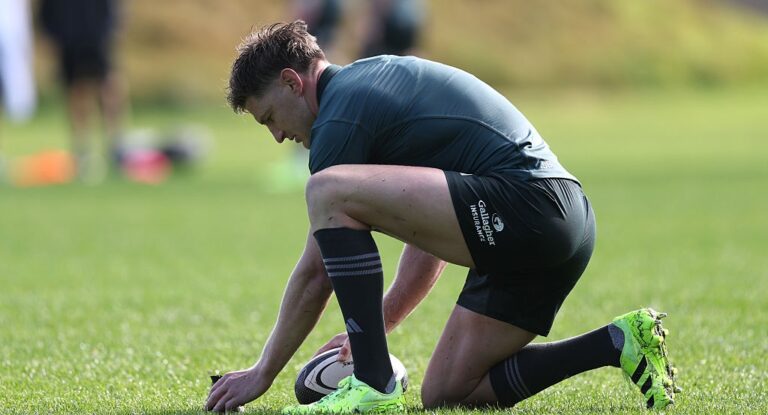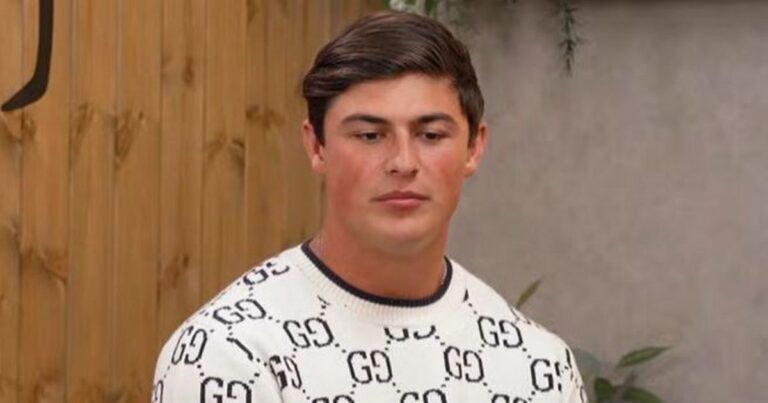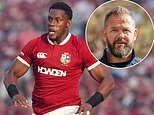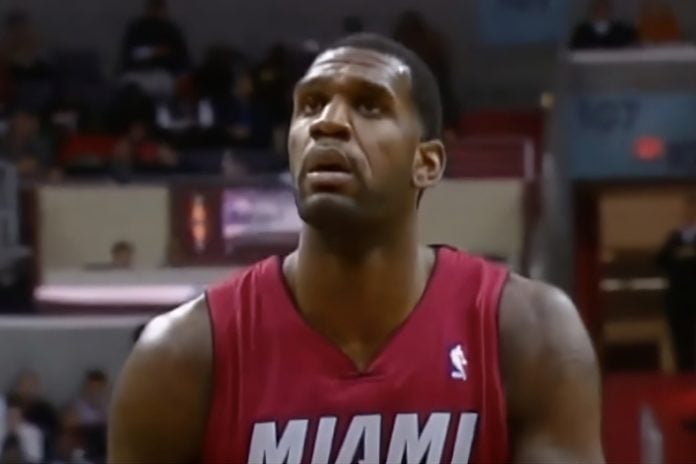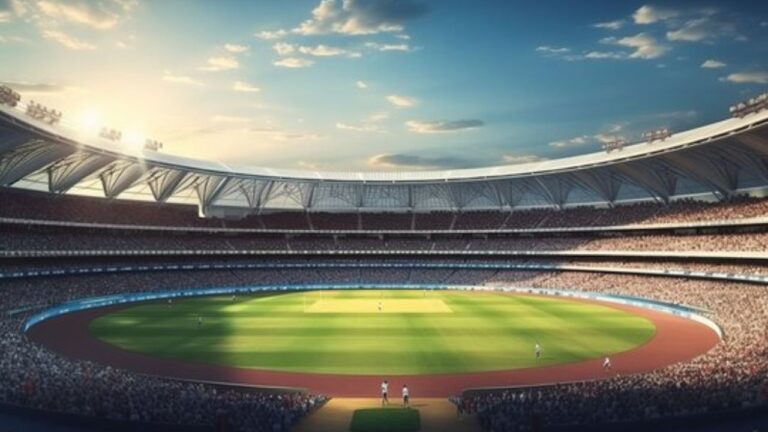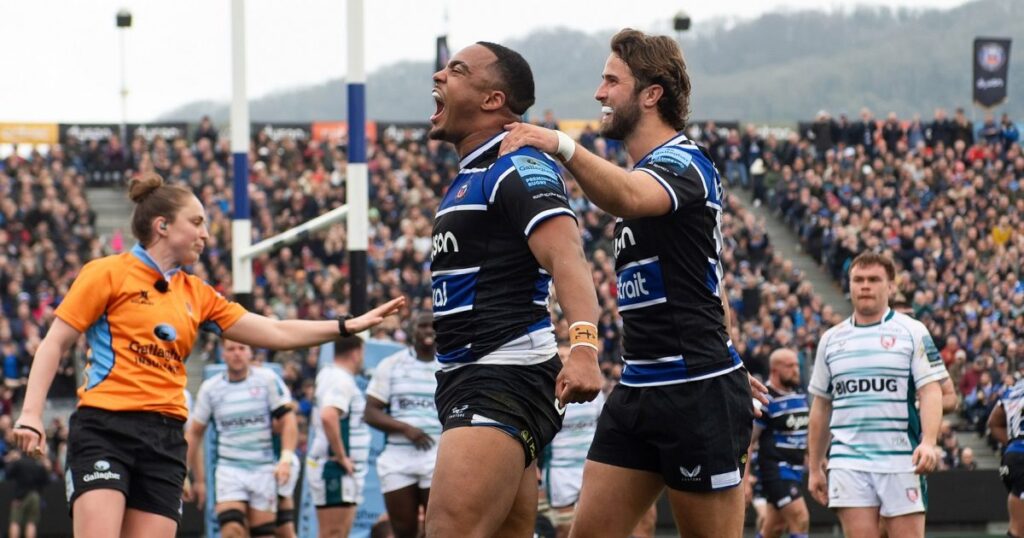
It is 29 years since Bath were crowned champions of England, a record that the current group of players will be looking to put straight at Allianz Stadium, Twickenham this Saturday afternoon.
In 1995/96, Bath did the double, having edged out Leicester – their opponents in the Gallagher Premiership final this weekend – in the race for the league title and then broke Tigers’ hearts with a controversial one-point win in the Pilkington Cup final.
Phil de Glanville lifted the Cup aloft at Twickenham that day, having also started all but one of the 18 league games – the 38-38 draw with Sale on the final day of the season, that nearly handed Tigers the title. And, at the same time, Steve Ojomoh played in every position across the back row as a key member of the pack.
Their names will forever be associated with Bath Rugby folklore through their deeds in blue, black and white, but even more so now that their sons, Tom de Glanville and Max Ojomoh, are amongst the current celebrated crop of players, who are on the cusp of going one better than the class of 1995/96 by landing a treble.
RugbyPass sat down with Tom and Max a few days out from the final between two of English rugby’s great clubs to chat about several topics, including fatherly advice, the success of the season to date, living in a goldfish bowl, what grates them about the media, and much more.
Max, your Dad has previously spoken about how he perhaps didn’t make the most of his talent. Did he say to you, don’t make the same mistake? If so, I guessed it worked because it was said you trained better than anyone this summer before you got injured …
MO: No, not really. Not a slight against him, but I would say my love for the game is slightly more around the technicalities. Therefore, I love training, and I am a ball player. Whereas obviously, if he is doing contact all of the time, I doubt that he enjoyed training. In summer, I don’t really enjoy much else other than training, so I try and go all year round.
And Tom, the main bit of advice your dad has passed on?
TDG: Probably not much rugby-related stuff. I think the main thing for me he has passed on is in terms of enjoying it and appreciating what we have now. I can imagine in 5-10 years it would be very easy to feel like it has just gone by. He tells me every time he can to enjoy it and appreciate what we have because it is a privilege to do it. This group is only going to be this group for the next 3-4 years or whatever, which is just a short timespan, so just enjoy it.
On that topic, you both had different approaches when you walked through ‘the tunnel of noise’ ahead of the Challenge Cup final at Cardiff. Tom, you were all smiles, whereas Max, you were more locked in …
TDG: Kind of alluding to what I mentioned earlier about what my dad said to me, about enjoying it, appreciating these moments. Walking into games with our mates around us and the rest of the squad cheering us in, might never happen again for all I know, I hope it does, but it might not, so I don’t want to have these moments and be so caught up in it to never actually appreciate it.
MO: Inside, I smile the same as him, I just find it quite weird that so many people are looking at us. Until I am on the pitch, it feels odd that they are celebrating us. I feel very appreciative of it, but I try and just look at the ground.
Does it feel like you’re in a goldfish bowl living in a rugby town like Bath?
MO: It’s definitely a small pond. It is quite nice, after a game, you might be getting a coffee and there are always people ready to stop you and congratulate you on a win. It is much better than a couple of years ago. Just because of how s*** it was previously, we almost embrace it more now.
TDG: As a general rule of thumb, the people of Bath are amazing; they are so warm and welcoming. Even when it was tough, they would still be positive to us and find the positives. Now it is ever more so, it is lovely to be out and about and chatting to people.
Obviously, the team was so dominant when your dads were playing. Do you ignore that side of things, or do you quite ike the fact that you could be the first Bath players to win the league title for quite a while?
TDG: We obviously massively respect what they did in that era of rugby. But at the same time, it is a completely different game now, and we are pretty keen to write our own story in terms of winning stuff and accolades.
Anything from their era that you’re jealous of?
MO: No social media!
Enough of the past and onto the present. The treble would be quite something. Do you face that with eyes wide open?
TDG: There is so much else to think about that is kind of so much more important, for now. It is the type of thing you think about once the dust settles. We’re just concerned about how we approach the game at the moment.
As league leaders and the team to beat, do you enjoy so much expectation being placed on you?
TDG: It’s easy for people to put us up there on a pedestal, forgetting that Tigers are an unbelievable side; they have got players bowing out who’ve had amazing careers, and that drives the team, and I think that we would be fools to disrespect them and think it is going to be anything other than a tough game. I know there is a lot of chat on the outside, but they are a brilliant team and they have got some amazing players, like a double World Cup winner at fly-half who can pull the strings for them, so we have got to respect that.
Did you think at any point in the play-off game against Bristol that all the hard work put in throughout the season might go up in smoke?
MO: Nah, not really. We were pretty calm. Fair play to them, they came out hot. But we knew we weren’t playing our game, we pushed the tempo a bit too much with the quick taps and stuff. Half-time was perfect for it. We were 28-0 in those 20 minutes after half-time. It was a good reflection point. I am glad that happened in the semi-final rather than this week. We have definitely taken our learnings from it.
The old Bath never knew they were beaten, and you appear to have the same resolve as a team, twice holding Bristol up over the line in the second half …
TDG: Every team has obviously got their system that they work off, and the extra 5-10 per cent just comes from the trust you have in the players on either side of you. For Max, it might not necessarily be his relationship with a front-rower, but he knows that if Cam (Redpath) bites in, he is coming in with him, and Joe is coming in with him. The relationships on either side of you in a defensive line are what we have built over the season and that has come to fruition.
In attack, you have broken all sorts of records and only need three tries to be the highest-scoring team in an entire Premiership season (Exeter, 102). Is one of the reasons for this that you have multiple ways of scoring?
TDG: It is not rocket science; it is not a really detailed, structured plan. We just play with a flat pace and breakdown speed, and we try and beat teams for spaces. I think the way that has panned out through the season has meant we have scored that many tries.
MO: I would say there is a lot of system-based teams out there, and I would say what makes us hard to defend is the fact that we rely on good decision-making. How do you break down a system if there isn’t one? Over time, the pressure speaks for itself. If we are on the front foot for a long time, you are either going to concede a penalty or a line break. I think how we keep the ball, because of how simple we play, leads to things.
Tell us about the influence of Le Blackett on the back play …
MO: I get on really well with him. He really suits our game and the types of players that we have in our backline; his attacking structure really suits the way I like to play, and he has a really good understanding of the game, and a real hunger to improve. I think you have seen that across the year, and I think our attacking stats speak for themselves, but all the backs really enjoy it and we have a really inclusive group. He is very good with simple messaging. I think the players as a whole are very good in wanting to learn more, so everyone is almost bombarding him, trying to figure out what he is seeing. But it is kind of simple in team meetings and stuff, he breaks down the opposition very well, he has got a very analytical mind and comes across with messaging that will help us for the next game in simple terms.
What is the rivalry with Leicester like, particularly the guys you are going to come up against?
MO: For the game as a whole, I think they’ll almost be like Bristol – driven on emotion with their players leaving and stuff. So I think we need to come in very composed, as we did against Bristol. As for my area of the field, yes, they have got good centres. I always play with a chip on my shoulder, so I can’t wait for the challenge. I am there to prove a point. Kata, Woodward or Perese, very good. I think, as you saw against Sale, they are solid carriers, good decision makers. But we have got a very strong centre contingent here, and I think we are always there to try and prove a point, try and jump a team, and we’ll try to end up on top.
On that chip on the shoulder, is that your rev-up?
MO: 100%. It gets the competitive juices going. But also, you can’t judge a centre based on his individual stats. Okay fine, I’ve played loads of games where my opposite number has had a million carries, but at the end of the day, if I can gel our forward pack, Finn and our backline better than they do it and we’re working as a team better, I will consider my job fulfilled. That is the sort of thing I think about going into a game; it is not my statistics, it is the holistic view of the game and what I provide for the team.
Do the dark times of a few years ago make the current success even sweeter?
TDG: I’d be lying if I said no, given the short time period as well in which it has turned around. Those feelings and some of those days were so tough, so to come off the back of it and to win so many games feels amazing, and to do it with your best mates as well is the best thing ever.
Did you ever think during your early days, I need to get out of here?
MO: I know results weren’t great, but I actually loved it. In my breakthrough year, we were awful, but it was quite nice to finally be playing, I found the transition years hard, the ones where you weren’t playing good enough to be in the team, and at the same time, we weren’t a great team as well. Those were the tough years. It makes it nice to be through the other side of it, it makes you appreciate it now so much more.
Does the Galacticos label grate a bit, given that you are two of many first-team players to have come through the club’s system?
MO: I’ll tell you the jarring one is that one where they, ‘they’ve bought all their players in’ – like when we destroyed Sarries at home. I think between 10-15 of that matchday squad that killed off Sarries were in the team when we got banged 71-17 or whatever it was. I feel like the media decides the narrative. If that’s the one they want to run with, fine. But if you look at the two matchday squads, there hasn’t been that much change; there are still a lot of the homegrown players there.
Differences to last year’s run to the final and this?
MO: Last year was odd. We didn’t start off the league that great. We thought there was a chance, but it turned into belief, in autumn and going into Europe. This year, it has been ingrained in us the whole time that it has to happen; we need to do it.
Neither of you played in last year’s final. You were injured, Tom, but what are your memories, Max?
MO: I am so grateful I have got the opportunity to get picked this year after last year. I was obviously glad we were in the final, but I f****** hated just watching it. I said in an interview a couple of weeks ago, I am not missing this one. I am just happy to be here. It feels nice.”














